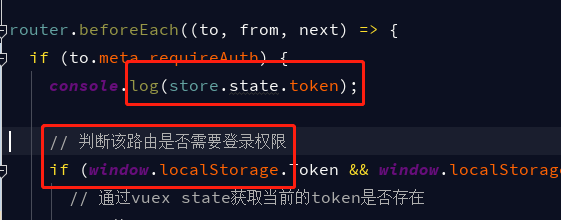可以将文章内容翻译成中文,广告屏蔽插件可能会导致该功能失效(如失效,请关闭广告屏蔽插件后再试):
问题:
What is the difference between a static array and a dynamic array in C++?
I have to do an assignment for my class and it says not to use static arrays, only dynamic arrays. I\'ve looked in the book and online, but I don\'t seem to understand.
I thought static was created at compile time and dynamic at runtime, but I might be mistaking this with memory allocation.
Can you explain the difference between static array and dynamic array in C++?
回答1:
Local arrays are created on the stack, and have automatic storage duration -- you don\'t need to manually manage memory, but they get destroyed when the function they\'re in ends. They necessarily have a fixed size:
int foo[10];
Arrays created with operator new[] have dynamic storage duration and are stored on the heap (technically the \"free store\"). They can have any size, but you need to allocate and free them yourself since they\'re not part of the stack frame:
int* foo = new int[10];
delete[] foo;
回答2:
static is a keyword in C and C++, so rather than a general descriptive term, static has very specific meaning when applied to a variable or array. To compound the confusion, it has three distinct meanings within separate contexts. Because of this, a static array may be either fixed or dynamic.
Let me explain:
The first is C++ specific:
- A static class member is a value that is not instantiated with the constructor or deleted with the destructor. This means the member has to be initialized and maintained some other way. static member may be pointers initialized to null and then allocated the first time a constructor is called. (Yes, that would be static and dynamic)
Two are inherited from C:
within a function, a static variable is one whose memory location is preserved between function calls. It is static in that it is initialized only once and retains its value between function calls (use of statics makes a function non-reentrant, i.e. not threadsafe)
static variables declared outside of functions are global variables that can only be accessed from within the same module (source code file with any other #include\'s)
The question (I think) you meant to ask is what the difference between dynamic arrays and fixed or compile-time arrays. That is an easier question, compile-time arrays are determined in advance (when the program is compiled) and are part of a functions stack frame. They are allocated before the main function runs. dynamic arrays are allocated at runtime with the \"new\" keyword (or the malloc family from C) and their size is not known in advance. dynamic allocations are not automatically cleaned up until the program stops running.
回答3:
I think the semantics being used in your class are confusing. What\'s probably meant by \'static\' is simply \"constant size\", and what\'s probably meant by \"dynamic\" is \"variable size\". In that case then, a constant size array might look like this:
int x[10];
and a \"dynamic\" one would just be any kind of structure that allows for the underlying storage to be increased or decreased at runtime. Most of the time, the std::vector class from the C++ standard library will suffice. Use it like this:
std::vector<int> x(10); // this starts with 10 elements, but the vector can be resized.
std::vector has operator[] defined, so you can use it with the same semantics as an array.
回答4:
Static arrays are allocated memory at compile time and the memory is allocated on the stack. Whereas, the dynamic arrays are allocated memory at the runtime and the memory is allocated from heap.
int arr[] = { 1, 3, 4 }; // static integer array.
int* arr = new int[3]; // dynamic integer array.
回答5:
It\'s important to have clear definitions of what terms mean. Unfortunately there appears to be multiple definitions of what static and dynamic arrays mean.
Static variables are variables defined using static memory allocation. This is a general concept independent of C/C++. In C/C++ we can create static variables with global, file, or local scope like this:
int x[10]; //static array with global scope
static int y[10]; //static array with file scope
foo() {
static int z[10]; //static array with local scope
Automatic variables are usually implemented using stack-based memory allocation. An automatic array can be created in C/C++ like this:
foo() {
int w[10]; //automatic array
What these arrays , x, y, z, and w have in common is that the size for each of them is fixed and is defined at compile time.
One of the reasons that it\'s important to understand the distinction between an automatic array and a static array is that static storage is usually implemented in the data section (or BSS section) of an object file and the compiler can use absolute addresses to access the arrays which is impossible with stack-based storage.
What\'s usually meant by a dynamic array is not one that is resizeable but one implemented using dynamic memory allocation with a fixed size determined at run-time. In C++ this is done using the new operator.
foo() {
int *d = new int[n]; //dynamically allocated array with size n
But it\'s possible to create an automatic array with a fixes size defined at runtime using alloca:
foo() {
int *s = (int*)alloca(n*sizeof(int))
For a true dynamic array one should use something like std::vector in C++ (or a variable length array in C).
What was meant for the assignment in the OP\'s question? I think it\'s clear that what was wanted was not a static or automatic array but one that either used dynamic memory allocation using the new operator or a non-fixed sized array using e.g. std::vector.
回答6:
I think in this context it means it is static in the sense that the size is fixed.
Use std::vector. It has a resize() function.
回答7:
Yes right the static array is created at the compile time where as the dynamic array is created on the run time. Where as the difference as far is concerned with their memory locations the static are located on the stack and the dynamic are created on the heap. Everything which gets located on heap needs the memory management until and unless garbage collector as in the case of .net framework is present otherwise there is a risk of memory leak.
回答8:
Static array :Efficiency. No dynamic allocation or deallocation is required.
Arrays declared in C, C++ in function including static modifier are static.
Example: static int foo[5];
回答9:
You could have a pseudo dynamic array where the size is set by the user at runtime, but then is fixed after that.
int size;
cin >> size;
int dynamicArray[size];
回答10:
static arrary meens with giving on elements in side the array
dynamic arrary meens without giving on elements in side the array
example:
char a[10]; //static array
char a[]; //dynamic array


